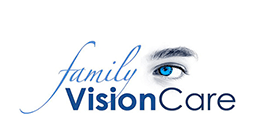
Are you having trouble sleeping at night? Blue light exposure before bedtime can prevent you from getting the restful sleep your body needs to feel refreshed in the morning.
If you’ve made a habit of checking your phone, using your computer or watching your favorite TV show before you turn out the lights, you may want to consider purchasing a pair of blue light glasses.
What Is Blue Light?
Sunlight consists of a rainbow of colors, known as the visible light spectrum, which ranges from red to blue light. On this spectrum, blue light, also called high energy visible (HEV) light, has the shortest wavelength and emits the highest amount of energy into the atmosphere.
While blue light naturally radiates from the sun, it’s also emitted by interior lighting, computer screens, tablets and all other digital devices.
Healthy doses of daytime blue light exposure can be beneficial to your physical and mental health, as it boosts alertness, improves cognitive function and memory, can elevate your mood, and regulates your circadian rhythm – the body’s natural sleep/wake cycle.
However, overexposure to this high energy light, especially before bedtime, can interfere with your natural sleep cycle and prevent you from getting a good night’s rest.
How Does Blue Light Affect Sleep?
The darkness of night stimulates the body to produce melatonin, the sleep hormone that helps your body relax and fall asleep.
Exposure to blue light in the evening hours, and especially before bedtime, can delay melatonin production and even impact the amount of melatonin your body produces. These lower-than-usual levels of melatonin signal to your brain that it’s still daytime and confuses your body’s natural sleep-wake cycle.
So, scrolling on your phone or using your computer before bedtime can actually increase alertness and lead to problems with falling and staying asleep, resulting in poor sleep quality and daytime tiredness.
Can Blue Light Glasses Help?
If you’re having trouble sleeping at night, wearing blue light-blocking lenses for evening screen time may be the solution you’ve been searching for.
Blue light glasses are designed to filter out blue light to reduce the negative effects associated with blue light exposure.
A study published in the Journal Of Adolescent Health (2015) reported that teenagers who wore blue light glasses in the evening while using a digital device had healthier circadian rhythms than those who didn’t wear blue light glasses.
If you spend a significant amount of time in front of your computer or other digital device during the evening hours, wearing computer glasses or adding blue light filters to your lenses can help you get the good night’s sleep you’ve been dreaming about.
Computer glasses are available with or without a prescription, and are customized to meet your visual needs and lifestyle.
To learn more about computer glasses or about adding blue light filters to your lenses, call Family Vision Care in Mt Pleasant today. Your rested self will thank you.
Q: Can blue light cause computer vision syndrome?
- A: Yes. Due to its high energy and shorter wavelengths, blue light causes an inconsistent flow of light emissions. This creates a glare or flickering on the screen that can result in eye strain, headaches, blurred vision, dry eyes, and mental and physical fatigue — a condition known as computer vision syndrome. That’s why many eye doctors recommend wearing blue light glasses any time you use a digital device, and not just in the evening.
Q: What are the long term effects of blue light exposure?
- A: Scientific studies are underway to determine whether long-term exposure to blue light can damage the retina at the back of your eye and increase your risk of developing age-related macular degeneration (AMD) and other sight-threatening eye conditions.
Quality Frames For Prescription Eyeglasses & Computer Glasses. Visit Family Vision Care for an eye exam and eyeglasses that match your style.
